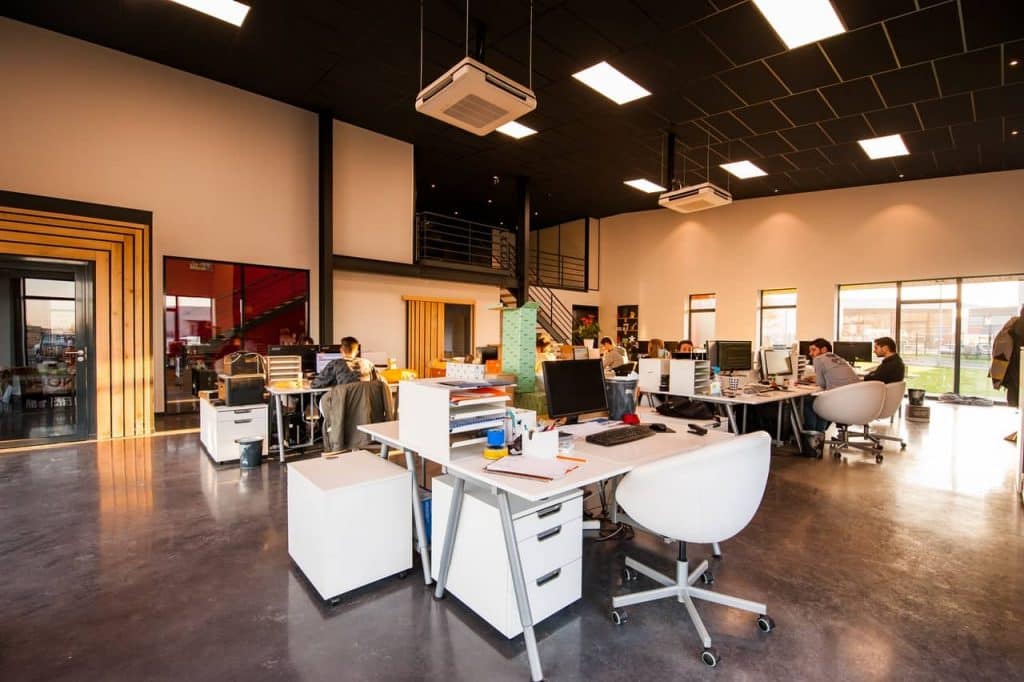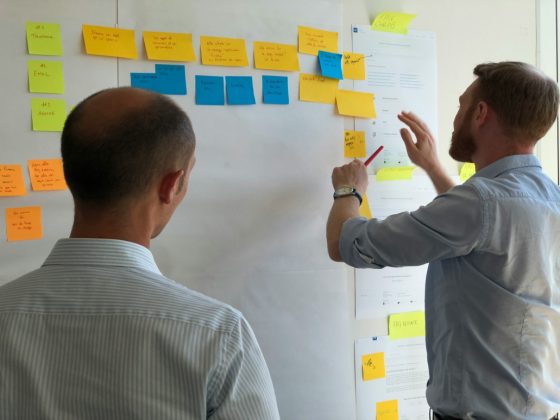As statistics indicate, as many as 10% of all employees are remote workers. This has consequences because they are often unable to find a work-life balance. Digital stress is not only complained about by employees working from home – it affects all those who deal with the use of digital devices on a daily basis.
Limit distractions

Most employees enjoy having a lot of freedom, but you have to be aware that if someone is able to access your computer or cell phone, then they can do whatever they want without your permission.
If you allow people too much freedom, you’ll end up with one or more of these things happening…
Letting people use Facebook or Twitter excessively.
Giving out credit cards to pay for groceries, utilities, etc.
Throwing parties in the office with food and drinks; events like this usually leads to people checking out from their jobs.
People will come into work tired and not feeling well because they were partying all weekend.
We live in an age where everyone is always connected. People need enough time to relax and decompress. Don’t let anyone steal your team’s efficiency by giving them free time to slack off.
The bigger problem is when people start pulling shifts around the house every night to make ends meet. This habit can screw with someone else’s schedule (if they have another job) or affect their quality of sleep.
It’s best to put limits on how many texts/calls people should be using at any given time, and try to ensure that no one misses a call really anyway?
Make office social areas comfortable

Although you want your employees to work at their highest potential, that doesn’t mean you have to make them live in a cage or put up with constant stress.
Make sure there are good public areas for people to use the phone/computer over time. Give them cushioned seats where they can sit and relax for a few minutes.
Provide fresh water dispensers and take-out coffee cups. Let people who work long hours know about home care such as having drinks and food ready when they get back from work.
Employees whose workplaces are quiet and peaceful may not need additional physical distractions. However, if your business sees lots of traffic and many conversations exit aloud, you will want to accommodate busy workers by providing multiple outlets for communication.
Provide encouraging feedback

Most employees will perform at their best when they are given encouragement, recognition, and appreciation. If you give your staff compliments, tell them how well they have done their job or discuss any improvements that they have made.
If you criticize or scold your employees, they will feel under pressure to meet your expectations. This can make them lose confidence in themselves.
Your employees deserve respect, not punishment. When things do not go as planned, instead of punishing your workers, try to understand what they did and why they did it. Then, help them find a way to fix the problem.
Only then can they know that they are being punished for doing something wrong.
When you punish your workers, they will also think that it is okay to treat their jobs as playing games. They will not take it seriously if there is no improvement in performance.
Punishing your workers may seem like a good idea at the moment, but it will usually backfire in the long run.
Make meeting goals important

Another common cause of employee burnout is failing to meet business objectives. If employees don’t feel like their work is valued, they will lose motivation and even struggle with self-care issues such as stress and depression.
However, sometimes companies experience setbacks or fail to achieve meaningful goals. In these situations, there are bound to be frustrations among staff members.
The first step to take when you face organizational challenges is to assess the situation honestly. You must understand what has caused your team to behave in this way if you want to fix the problem.
Then, once you have identified the root cause, it’s time to set a goal. This can be anything from increasing productivity to improving teamwork and communication.
Finally, you need to put plans into action and measure your results. Just because something was planned does not mean that it will work.
Planning never works, but without planning, you cannot succeed. Here are some examples of failure to plan to be successful.
Take ownership of productivity

The number one reason why people get distracted is that someone else told them to do something. This could be your boss telling you what to work on, or it can be that person ordering you around.
If you have a manager, then they are obviously not running the show themselves, so try to take more accountability into yourself.
It’s impossible to focus when another person (or entity) has control over your focus. You will always find things to help you focus on getting involved in whatever business you are working in.
That being said, don’t just ‘say no’ to orders. Instead, explain to anyone who asks that you want to make their request first before doing anything else. It’s much easier to say no than if there was a rush order.
Also, remember companies need consistently high-quality output which means input from others. So, unless you’re the only one for the job, you should never rely on other people to get stuff done.
In the end, we all own ourselves whether we realize it or not. If we keep letting others down by coming up with distractions, then maybe it’s time to look for a new job.
Teach communication skills

Communication is one of the most important abilities in any employee’s repertoire, but it is particularly pertinent for those who work behind a computer.
Teach your employees how to communicate clearly; teach them about face-to-face communication methods such as talking, listening, and speaking. Also, demonstrate through discussion what good communication looks like, so they understand why things are said before they say them.
This will help them develop confidence with speech and improve their communication efficiency.
Also, let them know that you are there for them if they need to talk. This creates an environment where they can speak up without fear of retribution.
Communication is no longer restricted to spoken words only, and teaching people social literacy helps them be aware of this fact. By being aware of this fact, they will also become more mindful regarding the use of language and the tools used for communication (i.e. phones, internet, emails, etc.).
Become familiar with your employees’ communication styles and make sure that they are comfortable with you and each other. Give examples throughout the day to educate them on effective communication techniques.
Embrace technology

With all the advances in digital technology, there are more options for employees than ever before. If you hire staff that can work independently, they can spend time doing other jobs as well.
This helps keep them engaged and happy with their job. Having one source of happiness for your workers is worth its value. You will see this reflected in your overall business productivity, service levels, and quality of life for your employees.
By having less distance between the manager and employee, users can better understand what needs to be done and how it should be done. This creates a stronger connection which brings about satisfaction. When people feel satisfied, they tend to perform at a higher level.
We have implemented an AI-based survey system. The results have been very positive. People love it because they get to give their opinions and find solutions.
Survey systems like these are great ways to connect with your team and boost morale. Here’s why — everyone loves giving answers!
Employees want to do good quality surveys and help the company. So if someone asks them a question, they will try to answer truthfully without being penalized. It creates trust within the organization and team solidarity.
Getting input from others makes them feel useful and gives them confidence in themselves. Many companies use polls to ask questions about practices or policies, so people can express their thoughts and feelings.
These tools may not always produce accurate results, but they
Keep up to date

With the speed at which technology advances, staying ahead in your field can be difficult. You need to keep yourself informed about all the new tools that are being created and released.
It’s impossible to know everything, but trying to stay knowledgeable about what works and doesn’t work is better than knowing nothing or going with popular demand.
Below you will find resources; try your best to evaluate each one and decide if they are worth investing in.
There are many ways to educate yourself and get more information, here are some articles that talk about these skills.
Give constructive criticism

In any relationship, especially in workplace relationships, giving honest feedback is very important.
When you give someone negative information, they will feel one way or another. They might get upset, angry, or even depressed.
Therefore, it’s essential to be truthful while providing positive feedback so that people can improve their work ethic and the quality of their job.
Here are some examples of how you could provide more constructive criticism than negative comments.
If you find yourself in a situation where someone is not doing his or her job, but there are no other resources available, then you may want to tell them about your expectations and/or feelings.
It is helpful to know what things are before you say anything else. If you do not know how to help someone else with their problem, then avoiding making an excuse is the best thing you can do.
Make sure that you are calm when saying something to a person as well. A calm response time helps prevent an outburst from occurring.
Also, remember that these are human beings having a hard time at work. Something as simple as “I hope everything is all right” can make someone’s day.
If nothing else, it shows that you care enough to take a few minutes out of your busy schedule to think of them.










